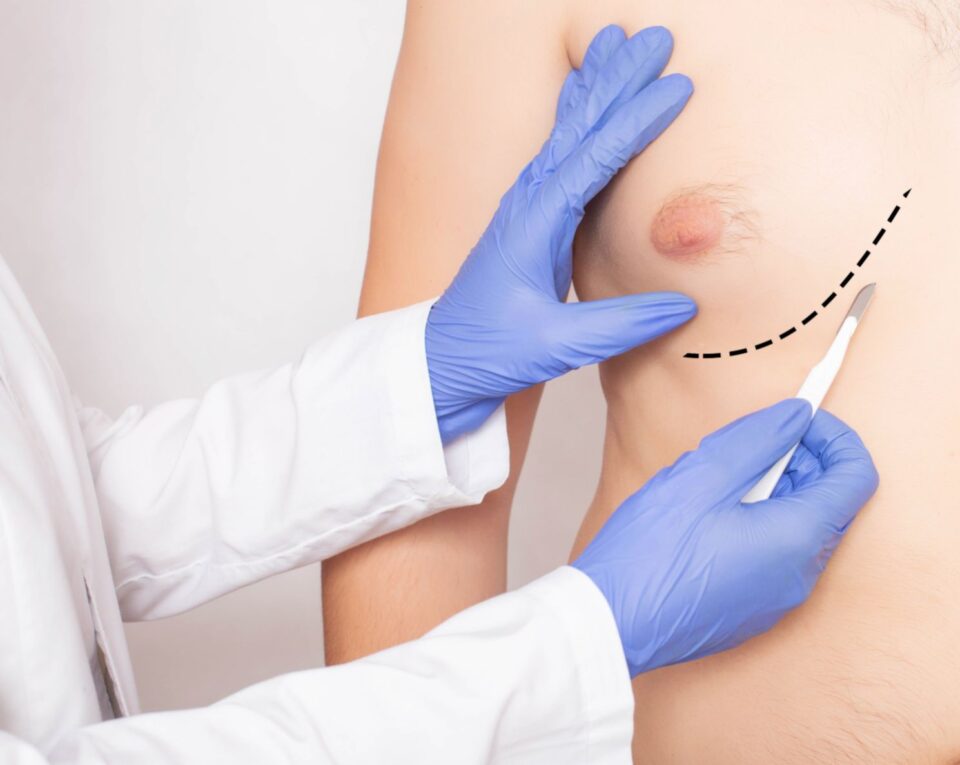Gynecomastia Surgery in Jackson, MS
We Specialize in Gynecomastia Treatment
Reclaim your confidence and redefine your masculine contour with the specialized gynecomastia surgery services offered at Runnels and North Outpatient Plastic Surgery Center in Jackson, MS. Gynecomastia, often caused by hormonal imbalances or certain medications, can impact self-esteem. Our experienced surgeons, Dr. Runnels and Dr. North, are dedicated to addressing these concerns, providing tailored solutions for a more sculpted chest. Schedule a consultation today if you’re ready to take the first step towards a more confident you.
Gynecomastia Symptoms and Causes
Gynecomastia is a condition marked by the enlargement of male breast tissue, and understanding its symptoms and causes is essential for effective intervention. Here’s a brief list:
- Enlarged Breast Tissue – The primary symptom is the noticeable increase in the size of breast tissue in males, often causing self-consciousness.
- Tenderness or Discomfort – Some individuals may experience tenderness or discomfort in the affected area, contributing to physical and emotional concerns.
- Hormonal Imbalances – Gynecomastia can be triggered by hormonal imbalances, with an increase in estrogen relative to testosterone.
- Medication Side Effects – Certain medications, such as anti-androgens or anabolic steroids, may lead to gynecomastia as a side effect.
- Underlying Health Conditions – Conditions like hypogonadism or liver and kidney disease can contribute to the development of gynecomastia.
Gynecomastia Diagnosis
Diagnosing gynecomastia typically involves a combination of a medical history review, physical examination, and, if necessary, additional tests. During the examination, a healthcare provider assesses the size and firmness of the breast tissue and may inquire about medication use, medical conditions, and family history. Blood tests may be conducted to evaluate hormone levels and rule out underlying health issues. Imaging studies, such as mammograms or ultrasounds, may be recommended to assess breast tissue and rule out other potential causes.
Treatment for Gynecomastia
Treatment for gynecomastia varies based on the severity of the condition and its underlying causes. In mild cases, lifestyle modifications may be recommended, such as weight loss and discontinuation of certain medications. However, when gynecomastia persists or causes significant distress, surgical intervention is often considered. Gynecomastia surgery, performed by experienced plastic surgeons, involves the removal of excess breast tissue and sculpting a more masculine chest contour.
Gynecomastia Prevention
Preventing gynecomastia involves addressing potential contributing factors. Maintaining a healthy lifestyle, including regular exercise and a balanced diet, can help manage weight and hormonal balance, reducing the risk of gynecomastia. Avoiding the use of substances like anabolic steroids and certain medications known to contribute to breast tissue enlargement is also crucial. Individuals should be mindful of any unusual changes in breast size or tenderness and promptly consult with healthcare professionals if concerns arise. While some cases of gynecomastia are unavoidable due to hormonal imbalances or medical conditions, proactive measures can play a role in minimizing the risk of this condition.
What to Expect After Surgery
After gynecomastia surgery, individuals can expect some initial discomfort, swelling, and bruising, which is typically managed with pain medication and proper post-operative care. Wearing a compression garment is often recommended to support the healing process and minimize swelling. Strenuous activities should be avoided during the initial recovery period, with most patients able to resume light activities within a few days. The final results become more apparent as swelling subsides over several months. Follow-up appointments with the surgical team, such as those at Runnels and North Outpatient Plastic Surgery Center, are essential to monitor progress and address any concerns. Adhering to post-operative guidelines is key for a successful recovery and optimal outcomes from gynecomastia surgery.
Contact Runnels and North Outpatient Plastic Surgery Center
Achieve a more confident and masculine physique with the comprehensive gynecomastia surgery services provided by Runnels and North Outpatient Plastic Surgery Center in Jackson, MS. Dr. Runnels and Dr. North, along with our dedicated team, understand the impact of gynecomastia causes on self-esteem and are committed to delivering tailored solutions. Schedule your consultation today and embark on the journey towards a chest that reflects the confident and empowered version of yourself.

